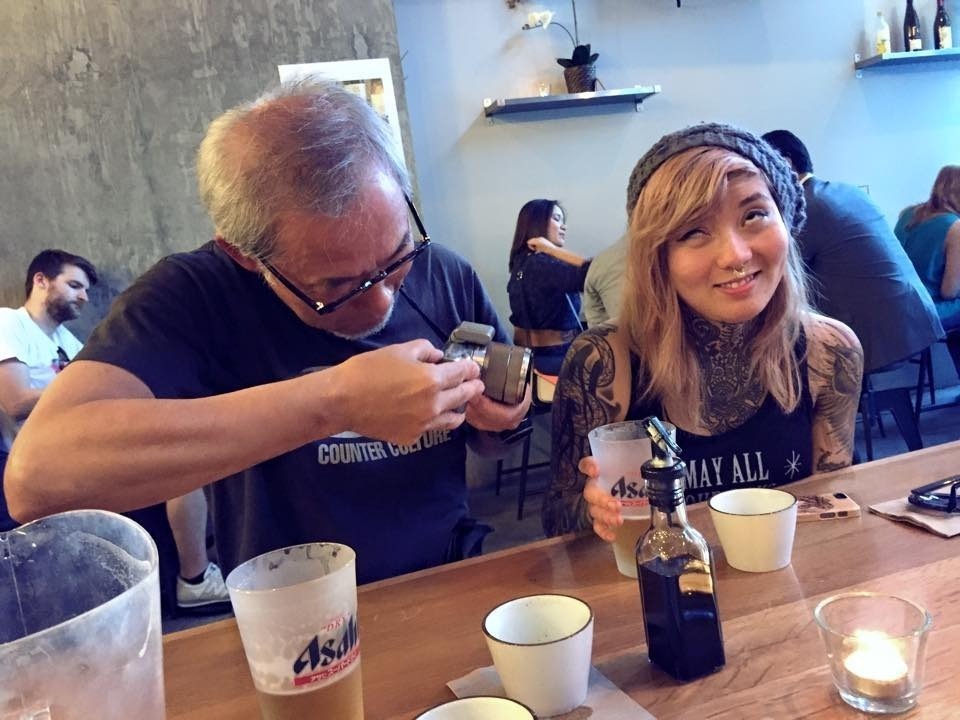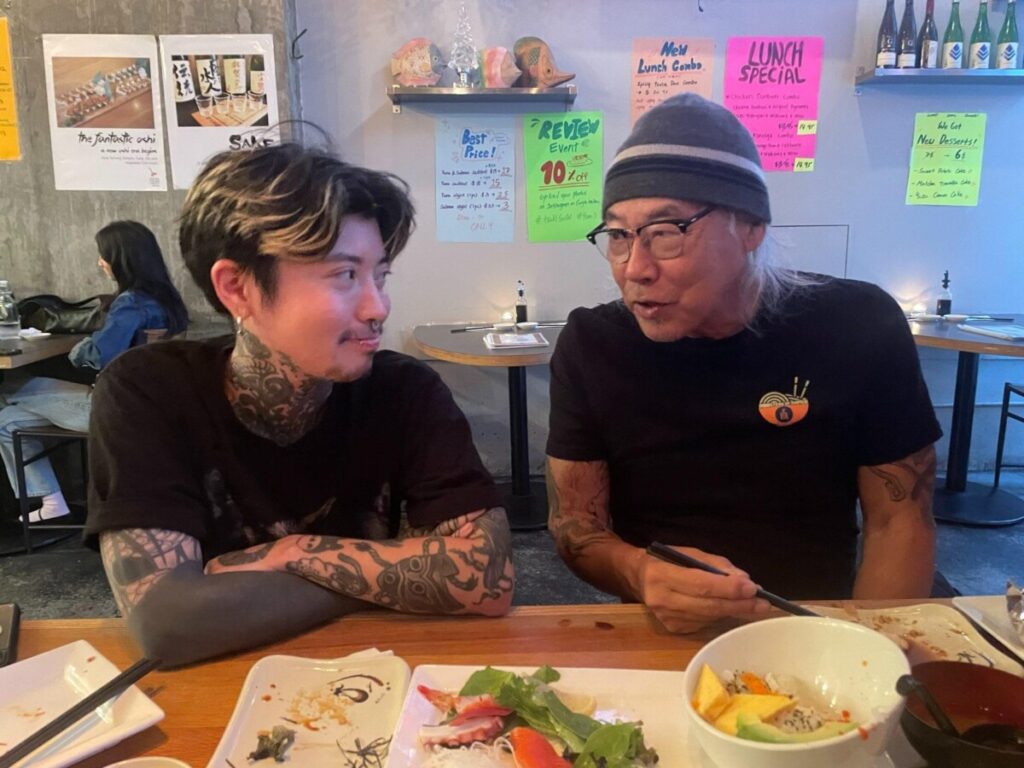
13 Aug Writing: Into the big elsewhere
To my Asian friends, my dad is a source of intrigue. Unconcerned with the values that so often define Asian fathers, he spent his formative years dropping acid in arthouse cinemas, riding motorcycles and getting into situationships all over Ontario. Him getting high and forgetting toddler-me on the roof of our minivan probably caused some blemishes on my developing psyche. This clashes with the ways he does inhabit our shared Japanese heritage: he’s not one for emoting, or verbal affirmations. As a kid, I knew I could count on him for David Lynch film recommendations, but not so much in the way of assurance or encouragement.
A rift opened between us, early, and widened as I grew older. This came to a head seven years ago. Waiting for a bus, bánh mì in hand, I told him that I’m trans and that I needed our relationship to acknowledge that. He wasn’t hostile, but I could see his gaze retreat in the familiar way of people whose pain is subterranean. His eyes spoke: this is too much, I don’t get it, and I don’t like it. I was starving for support, and he offered instead things that confused and gutted me—he said that some people’s kids join monasteries, for example, and isn’t that kind of the same thing? We sat in tense silence, setting a tone between us that would last years.
At the time, queer discourse emphasized cutting people off at the faintest whiff of disrespect. But around this time, too, I’d started to hang out at Lupinewood, amongst people practicing something very different: trying to love each other through conflict and ongoing disagreements.
I eventually moved across the continent, to Lupinewood, in 2021 — officially out of his physical orbit. We kept in touch over the phone. He asked about my day; I responded tersely, unable to trust him. I hated how reactive I was, but couldn’t find a way out of it. My dad was being dense, and it hurt. I wondered if there was a shared space to be had – with us both being stubborn, self-actualized black sheep – even if I couldn’t immediately see it.
We Japanese Diaspora aren’t ones to therapize our way through family estrangement. We generally are not direct about things. Coming from a culture of radical communication, I always thought that was messed up – why not talk it out? But when I spoke to my dad plainly about transness, the conversation quickly became completely fucking stupid. Shit coming out of an ass. We limped along like that for months.
But: he kept calling, and I kept picking up the phone. Over time, I started to think, This guy must really love me to put up with my teenager vitriol and still keep calling. I started to lean in. I’d stay on the line a few minutes longer, ask questions. He’d talk about his garden and new running gear. I’d talk about Dungeons and Dragons and TV. I wanted to send him scathing infographics, but I didn’t. Instead, I asked if he’d seen Umbrella Academy, and we talked about the lead trans actor Elliot Page. Somehow that felt tangible and safe. “She… they…look like a man!” he said, proudly sort of getting it.
It began to feel like a phone call was more about us taking time out of a busy day to check in and hear the other person’s voice, and less about the exact words exchanged. It dawned on me that my dad had parented me with no map, having himself been parented by an emotionally absent survivor of internment. We were both locked into our Japaneseness, focusing away from language, into the Big Elsewhere, a universe of small gestures, where we could both be a little dense and stubborn, and still love each other.
An in-culture stereotype is that the Asian way of saying “I love you” is to offer cut and peeled fruit, rather than words of affection. It’s in the doing, not the saying. During my recent trip back to Vancouver I saw my dad. He’d taken up weightlifting, and insisted on bringing me to his gym. Showing me the equipment, showing me around, he introduced me to everyone he made eye contact with. To the desk staff and sweaty gym regulars, to muscle bros young and old, he puffed his chest out and exclaimed, “This is my son!”

Story written by Makoto, edited by Terran in collaboration with Makoto

No Comments